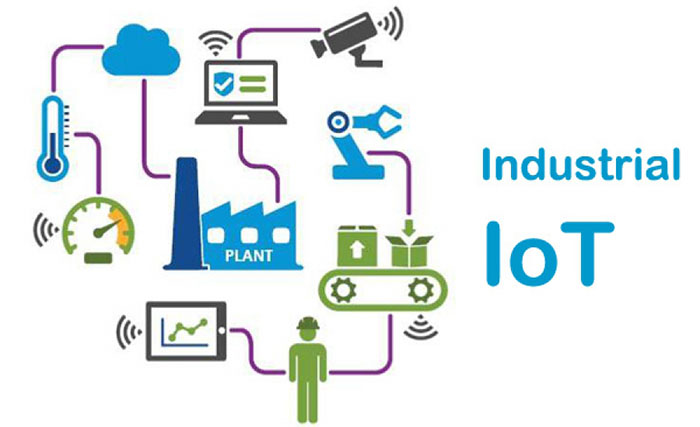What is the Industrial Internet of Things?
The Industrial Internet of Things (IIoT) refers to the billions of industrial devices, whether they are machines in factories or engines on airplanes, that are equipped with sensors and connected to wireless networks to collect and share data.


The advent of tiny, low-cost sensors and high-bandwidth wireless networks means that now, with a certain level of digital intelligence, even the smallest devices can be connected, monitored and tracked, share their status data, and interact with other devices communicate. All this data can then be collected and analyzed to improve the efficiency of business processes.
Why is the Industrial Internet of Things so important? What business needs does it solve?
IIoT is important because it helps enterprises make better and faster decisions, and the changes it brings are also closely related to the digital transformation projects that many enterprises are undertaking.
By providing extremely detailed data in real time, IIoT can help companies better understand their business processes and make them more efficient and even open up new revenue streams by analyzing data from sensors. IIoT can also give them insights into the wider supply chain, which will allow businesses to fully coordinate and further improve efficiency.
Which industries are adopting Industrial IoT?
Currently, the manufacturing, retail, general industry, and transportation industries are all very interested in IIoT. IIoT projects can allow manufacturers to better understand the operation of their production lines and predict when some machines will need repairs, thereby reducing unplanned downtime.
General industrial companies can use IIoT to reduce the cost of sending employees to inspect remote installations by letting employees monitor themselves. Retailers can understand where the bottlenecks are in the supply chain, and transportation companies can better understand the performance of their fleets.
But by no means limited to these areas, healthcare and government are also likely to be beneficiaries of IIoT, and while it is currently mainly adopted by large enterprises, it may become more widely adopted as the price of hardware and services drops.
How big is the Industrial Internet of Things?
Global IoT spending is expected to reach $745 billion in 2019, up from $646 billion in 2018, and is likely to reach $1 trillion in 2022. IIoT is already a big business: Manufacturers will spend $197 billion on IIoT this year, transportation companies will spend $71 billion, and general industrial companies will spend $61 billion, according to technology analyst IDC.
By comparison, consumer IoT spending will reach $108 billion, primarily in smart homes, personal health and connected car infotainment.
Enterprise spending on IoT budgets varies widely: for manufacturers, systems to support production and asset management will be key; freight monitoring and fleet management are priorities for transportation companies, while general industry spending will be Focus on building smart grids, natural gas and hydropower.
IDC said that by technology type, IoT services will account for $258 billion of this, with hardware spending approaching $250 billion, of which $200 billion will be spent on sensors. IoT software spending will reach $154 billion in 2019. The United States and China will spend the most, followed by Japan, Germany, South Korea, France and the United Kingdom.
How will the Internet of Things develop in the future?
IIoT is still mainly in the experimental and pilot stages, with only a few large manufacturers making significant investments. Interest in IIoT is likely to continue to grow as sensors become smaller and cheaper, especially as 5G networks become more widespread.